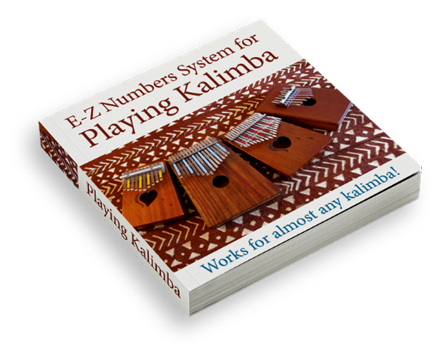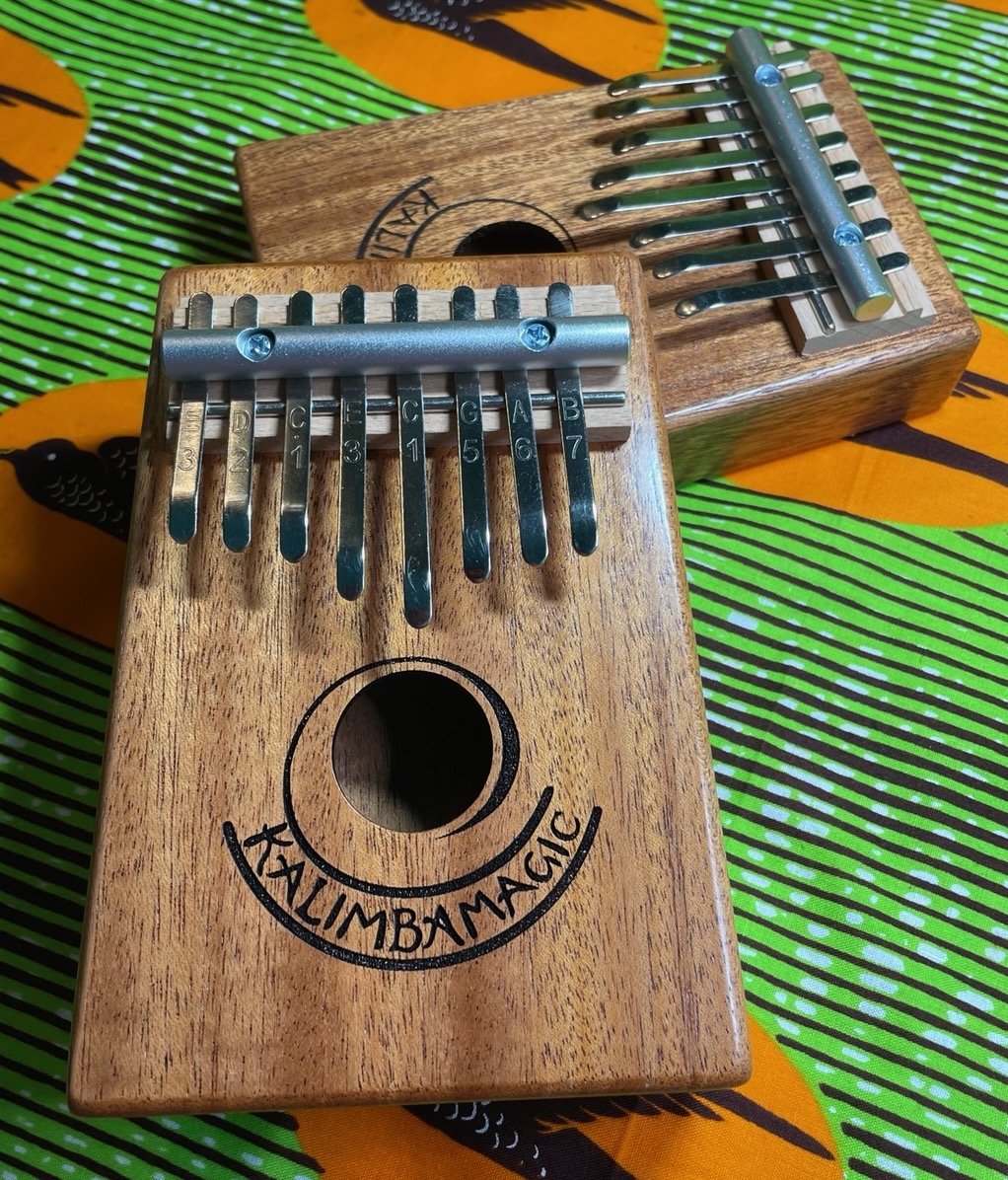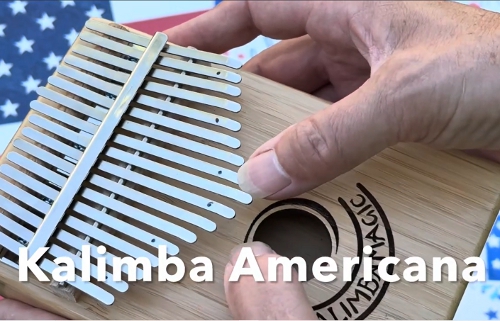Where do the Mbira and the Karimba come from? It’s easy to say – Zimbabwe. It’s even easier to follow up with – somewhere in Africa. The Zambezi valley. Or, maybe – who knows? Versions of striking metal on wood could perhaps be found anywhere, really. People always find a good excuse and a good way of making music. Why is the history so important? Maybe it isn’t, true. But the legends are very significant, because they tell us about the self-understanding of the people who made them: no musical instrument comes to us without reason, purpose, and style, and those can be woven into the legends.
But in all truth, where does any musical instrument come from? Only legends can tell. Only legends have a seductive feel for the mysterious beginnings of a musical instrument, a sound, a song. Only deep legends can whisper to us the magical whys and wherefores of how a human being came to be entangled with the magical process of expression. Baba Credo Mutwa, a famous Zulu sangoma [a type of traditional healer], wrote in his book Indaba, My Children, on the origins of the karimba, and how people first came to be musical beings. (There is a magic in the intentional, sacred beauty of music, and this Baba Credo Mutwa knows very well.)
In Mutwa’s story, a woman immortal named Marimba was the leader of a region where music was, as yet, an unknown thing. People did what they had done for the eternity of Time past, and their satisfaction in life stemmed from doing those things of their Ancestors again and again, with no modification. Indeed, Mutwa emphasizes, creativity was forbidden to mortals.
At one point, however, Marimba’s village is attacked by the Night Howlers. The mortals are frightened and poorly defended. They do not yet know, but the Night Howlers have come to take away their beloved queen, Marimba. Marimba’s son, devoted to his mother and doggedly determined that she should be safe, drags her into a cave which he seals with a large boulder before he returns to the fight. Right when the King of the Night Howlers raises Marimba’s son in one of his talons, in order to kill him because he would not give up his mother to the wicked wizard that wanted her soul – right then, a miracle happens.
Here’s Mutwa:
“It was just then that a miracle happened – a miracle in the form of a song that came floating through the night air like a ghost of pure mercy and deliverance. This song had a magical spell about it. It stunned the fiendish Night Howlers. There was a musical instrument in the singer’s hands which in future years became known as the karimba or kalimba. This unearthly music sent a haunting melody through the night and wove a mighty spell around the squatting Night Howlers. It paralysed them – destroyed them.
They let out a mighty roar in unison, and, as though they had all become victims of an alien virulent leprosy, their scaly flesh began to slough off their skeletons and to flow sluggishly down the slope of the clearing in the ruined village. Wisps of reeking steam erupted from their distended slime-green bellies as their foul bowels burst with sounds terrible to hear, and from these wisps floated the ghosts of the people they had already devoured. … All the people who had been herded together became caught in the webs of the Song of the Kalimba. They tore off their soiled loinskins, skirts and ornaments, flung them aside, and raised their arms in thanksgiving to the High Gods for their deliverance, after which they too joined in the sacred Song of the Kalimba.
Dead and living joined in and the very stars rejoiced. The gods wept crystal tears and bowed their heads in tribute and acclaim. Marimba led the hosts of dead and living with her song until the eastern sky greyed with the first promise of the coming dawn.” (Mutwa, 95-96, Indaba, My Children) [More about this book in Related Articles, below.]
This is how Zulu shaman Credo Mutwa wraps up the story of the karimba and how it came to people. Karimba was the very first instrument to come to people. Even the drums came later, as well as the marimba itself (named after the beautiful queen.)
The karimba came first, and Marimba and her new kalimba-karimba-mbira song led ‘the hosts of dead and living.’ This is a key phrase, because it tells us right away what the purpose of the mbira-karimba-kalimba is: first of all, it came to be a peacemaker among us. The karimba song, the first shaman, the first magic that rolled away a stone and prevented death from stalking humanity. Second of all, it came to lead the living and the dead – here we feel the role of the mbira in ceremony, uniting people with their Ancestors and singing the song of the Earth where all, both dead and alive, want to come together and dance.
As Baba Credo Mutwa writes later in the book, when Marimba, delighted with her new invention, continues to create musical instruments, each with a distinctive voice and purpose. “With the birth of the drum came the birth of new dances in the land of the Wakambi – dances like the bupiro-mukiti or the dance of life, performed by both male and female dancers, or the chukuza ya sandanda, the dance of the baboon, which is performed by male dancers only. This is the most muscle-punishing dance that can ever be performed. All these dances were invented for one reason only – expression of tribal religion and the release of that beneficial life-force dormant in every human being, but which, when released, makes one feel closer in the ‘arms of Eternity.’ (Mutwa, 112-113)
Mbira, the very first instrument. What came later? Drums, sure. Marimba. Violin. All children of the mbira, all learning how to be in their power in the material world. The harnessing of vibration into beauty and color and song and spirit. The legend of mbira origins, wrapped up carefully in the old book of an old, tired man who has seen a century. Let us listen to him, roll away the stones on our own deaths, and sing the song of the mbira that will bring us together with us our Ancestors.


Sign up for our newsletter and free resources with your email address:
We pinky promise not to spam you and to only send good stuff.
 Christmas in July 2025
Christmas in July 2025 Patriotic and American Music for Kalimba
Patriotic and American Music for Kalimba